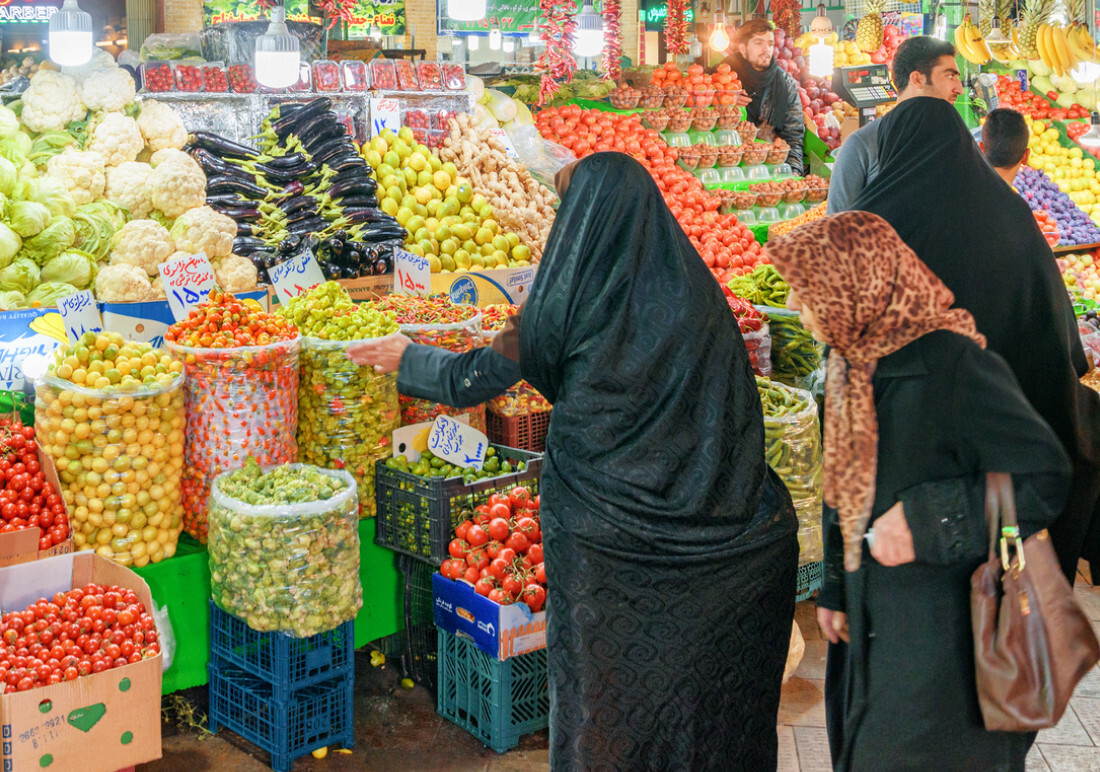“China needs justice, not equality.” According to Harvard sociologist Martin King Whyte, this is China’s pressing dilemma today. The title of an article Whyte recently published on Foreign Affairs really goes to the heart of the sustainability dilemma affecting China nowadays.
To the question “should you formulate a bulleted list of priorities to be addressed for China’s overall sustainability, what would you mention?”, Whyte argued that procedural justice is an urgent, tricky, and fundamentally important issue for China’s future. The Chinese Communist Party (CCP) recognizes the need for Chinese people to be protected from hazardous, arbitrary, and unfair decisions of the power holders. Addressing this demand–for predictability and accountability–is at the root of China’s growing social unrest. However, the challenge is how to provide more procedural justice without damaging the heart of CCP’s Leninist principles and questioning the very existence of the Party itself.
Whyte’s argument, quite different from the conventional view, calls into question–by supportive evidence from surveys he has directed in China over the years–the common “cause-effect” duo of growing inequality, growing social unrest.
Inequality, measured through the Gini coefficient, has dramatically grown from Mao Zedong to Xi Jinping. According to the National Bureau of Statistics (NBS), the Gini coefficient for the year 2012 reached 0,474, far above the 0,28 estimated for 1981. In this regard, it is worth noting that for over a decade the NBS did not publish this particular index. Indeed, even in a nondemocratic society, the sentiments of ordinary citizens and their perceptions of equality and inequality do matter. The almost universal view that growing social anger might shake the foundations of CCP rule sees anger as a result of inequality trends and as such as a matter of distributive injustice. According to this view, ordinary citizens perceive as unjust the growing social stratification of Chinese society.
To a great extent, the issue depends on the meaning of fairness and unfairness, which is subjective rather than objective. «Whether socialist China before 1978 was an egalitarian social order that Chinese citizens might look back with nostalgia or a rigid and unfairly stratified social order from which today’s market society might be seen as a welcome escape» (Whyte, The Myth of the Social Volcano: Perceptions of Inequality and Distributive Injustice in Contemporary China, 2010) is a matter of great relevance, particularly when dealing with Chinese citizens’ perceptions of inequality.
Based upon a survey researches on distributive injustice conducted on a national scale in 2004 and 2009, Professor Whyte and his colleagues found that «most [Chinese citizens] accept the more unequal post-socialist order in which they live as more fair than unfair» (China’s Internal Dilemma, Testimony before the US-China Economic and Security Review Committee, 2011).
According to Whyte’s findings, the most significant disapproval of the current patterns of inequality concerns the hukou system, i.e. China’s institutional barrier at the heart of the country’s urban and rural divide. The household registration system has two distinctive traits: (1) having an agricultural or non-agricultural hukou (the basis for profoundly different opportunities even today in China) depends on an individual’s place of origin, and consequently it is not a discrimination based on merit, personal talent, or individual characteristics; and (2) it is a heritage of the Mao-era and as such it is not an inequality introduced by market reforms, or gaige kaifang.
Nevertheless, rural-urban inequality might well threaten the political stability of a party-centered system that allows such an unfairness to exist. Two considerations might be helpful to understand Whyte’s argument:
1. «However nasty the discrimination suffered by China’s migrants today, they have at least escaped the confines of their village and a life of agricultural toil in their quest for better opportunities elsewhere» (China’s Internal Dilemma, Testimony before the US-China Economic and Security Review Committee, 2011). In other words, no matter the differences in terms of opportunities compared to urban citizens, migrants and villagers have generally experienced great improvements in their standards of living.
2. The perception of inequality has much to do with the perception, within the society, of who is to be deemed as a close peer versus a distant stranger. As for the former, a sharing of life conditions is to be found, while with the latter there are very few connections. In this regard Professor Whyte claimed that: «Another factor in the rather laissez-faire Chinese attitudes about inequality is that, as in any society, perceptions of how one’s neighbors, co-workers, and former classmates are doing shape feelings of economic fairness much more than do perceptions of wealthy but distant strangers» (M.K.Whyte, Foreign Affairs, 2013).
Wang Feng, a social scientist, argued that equality in China is to be found mainly within one’s work and residential category and not across categories (Wang, Boundaries and Categories: Rising Inequality in Post-Socialist Urban China, 2007). This argument confirms what Martin Whyte and his colleagues claimed (and that Marx had claimed before them): a person perceives the reality of his/her own living conditions in a very different way if his/her neighbor lives in a palace or else in a house like his/her own (Whyte, Myth of the Social Volcano: Perceptions of Inequality and Distributive Injustice in Contemporary China, 2010). Indeed, the existence of inequality across social groups has not resulted in coordinated and cross-categorical social protests. At least, this sort of boundary-crossing collective challenge has not emerged up to today.
It seems then that the growing social unrest affecting China is not about income inequality. So what is the social unrest about? Whyte argues that «the sparks that set off popular anger and public protests are abuses of power and/or procedural injustice issues, rather than distributive injustice complaints» (China’s Internal Dilemma, Testimony before the US-China Economic and Security Review Committee, 2011). Procedural justice, a quite sensitive topic in contemporary China, is about the perception of being in control over one’s own life versus the impression of being vulnerable to arbitrary abuses of power, and about having institutional and law-defined ways to demand some sort of justice should a right violation occur. However, it is not that easy to draw a boundary between distributive and procedural injustice.
By adding this latter element, the hukou system widespread disapproval emerging from the polls conducted by Whyte and his colleagues begins to make sense. Indeed, the hukou system and its ties with procedural injustices–the farmers’ rights over the land and the discretionary and daily abuse suffered by this category of Chinese citizens–is somehow located in the grey zone between the two types of social injustice. As mentioned above, it is hard to predict if the rising demand for the abolition of the household registration system (many agree that it’s time for a serious reform) will directly challenge Zhongguò political stability. When asked, “Why is the hukou system still in place?” Martin Whyte argued that the reasons might be two:
1. Urban administrations are worried that they are going have to support all the costs that the equalization of social entitlements between urban and rural citizens would entail, as a consequence of the abolition of the hukou system;
2. China’s international competitiveness is threatened as a consequence of increasing labour costs. As argued by many scholars, the impressive economic growth experienced by China in the last 30 years has been supported by cheap, well-educated, and disciplined labor force coming from the countryside, a by-product of the hukou system.
Even though hukou reform will bring benefits in term of domestic consumption–by unlocking the consumption power of the migrants, who until now have focused on expenditures for social security, housing, and education–the puzzle is complex. It might be said that the reform of the household registration system is far more a matter of public finance, fiscal reform, and generally speaking of political economy, rather than politics.
On the other hand, the one element that might really shake the grounds of the Party’s legitimacy is the mounting conflict over land ownership rights both in urban and rural China. Indeed, this is an issue connected with the type of hukou a Chinese citizen holds, but with larger implications.
A conclusive consideration might shed some light on the challenges the new leadership is asked to face in the near future. Let’s put it this way: from a government point of view, acting on inequality is quite different than acting on injustice. Distributive injustice might be contained by a set of policies that tackle the issues of the poorest or of the lower classes in terms of economic capabilities.
Distributive injustice is rather a matter of public finance, whereas procedural justice is a matter of political choice–in any regime, be it democratic or authoritarian. In the latter case, however, the situation is more complex: if one party monopolizes the state, the legitimacy of its own existence is at stake when dealing with procedural justice.
In the Middle Kingdom, the former issue–distributive justice–has been partly addressed, particularly in the Hu-Wen decade. The call for a harmonious and moderately well off society as a reaction to the increasingly unstable, unbalanced, uncoordinated and ultimately unsustainable Chinese economy sounds like an economic answer to an economic problem. The surveys conducted by Whyte and its colleagues in 2004 and 2009 detected the perception, among those interviewed, that efforts to tackle income inequality have been carried on by the government with some effectiveness. As a matter of fact, a technocracy might well handle this type of challenges, while for the latter issue–procedural injustices–to be addressed a political endorsement is needed. Quite urgently, actually.
*The following article is the result of a stimulating discussion and sharing of ideas with Professor Martin King Whyte (Sociology, Harvard University) that took place in Fiesole on May 21, 2013.
© Riproduzione riservata












